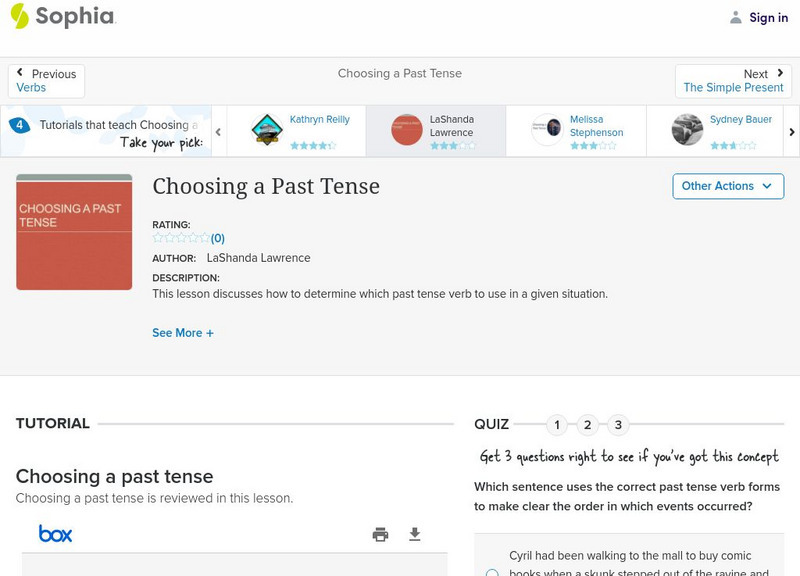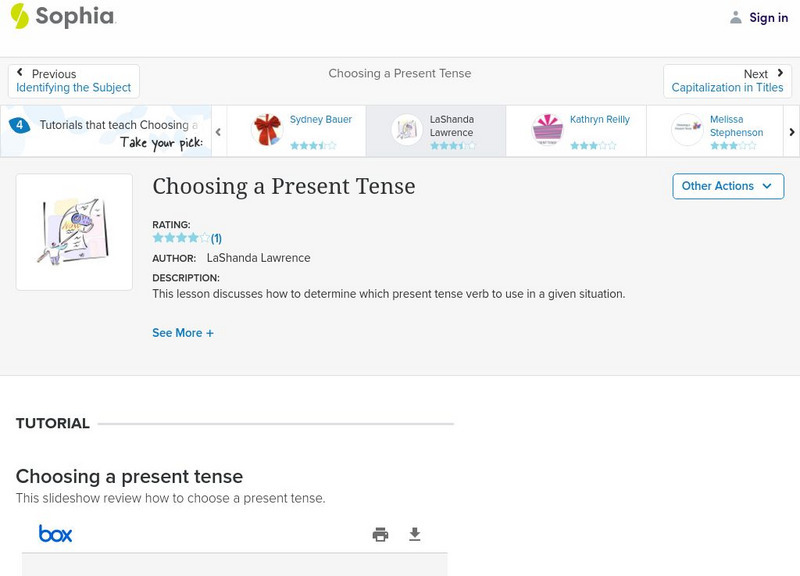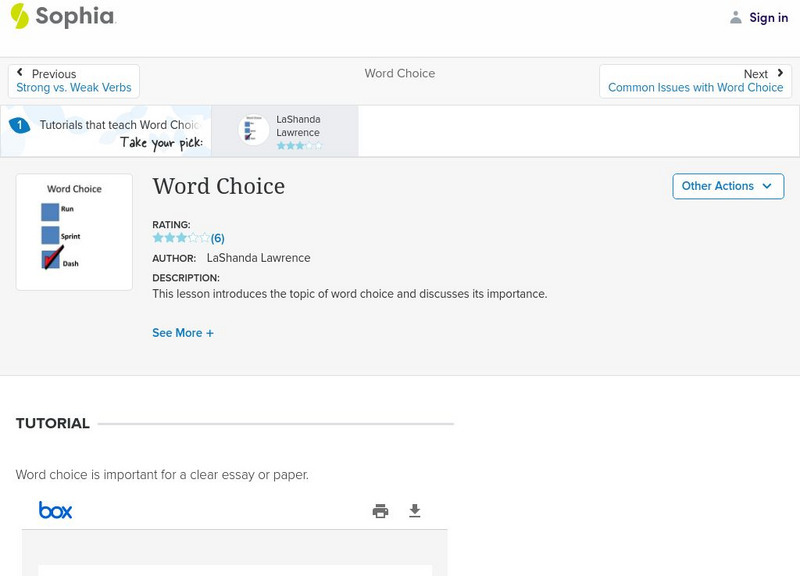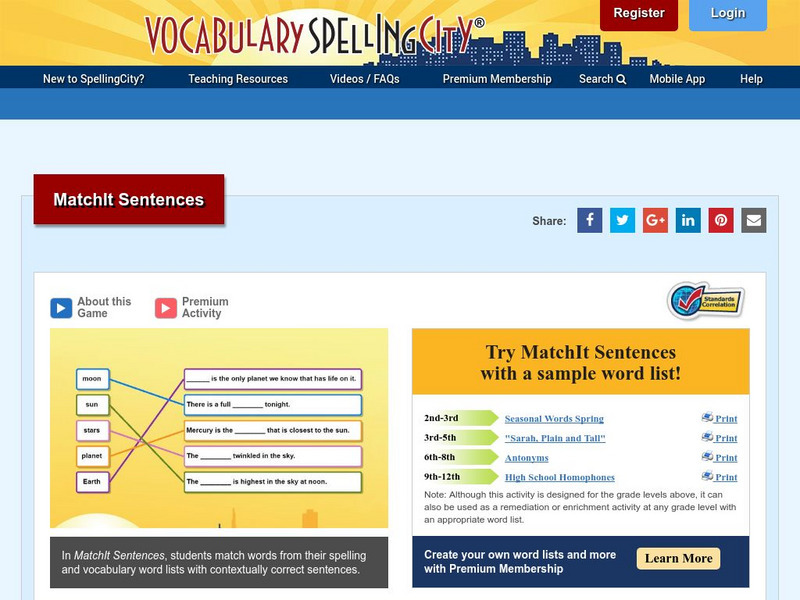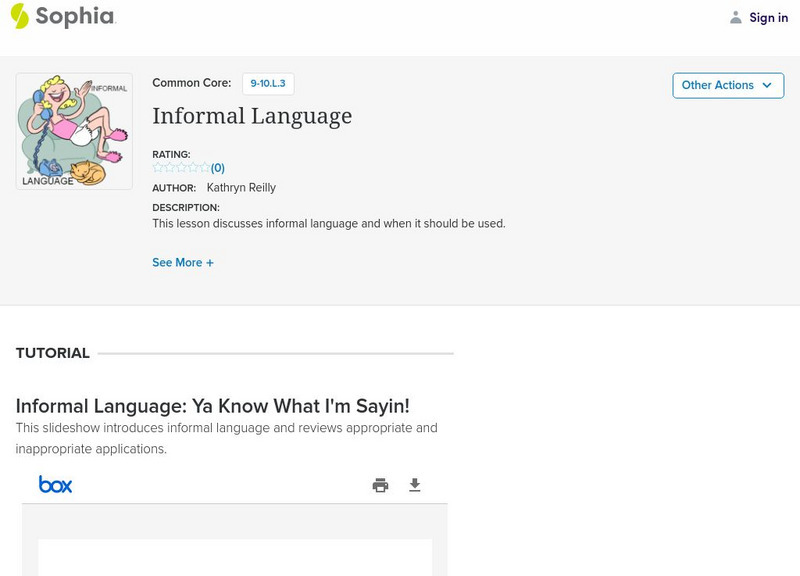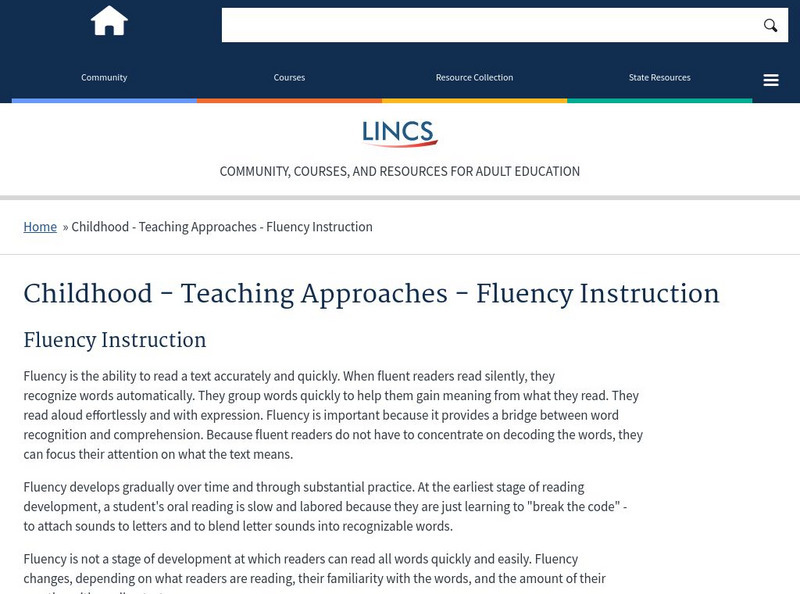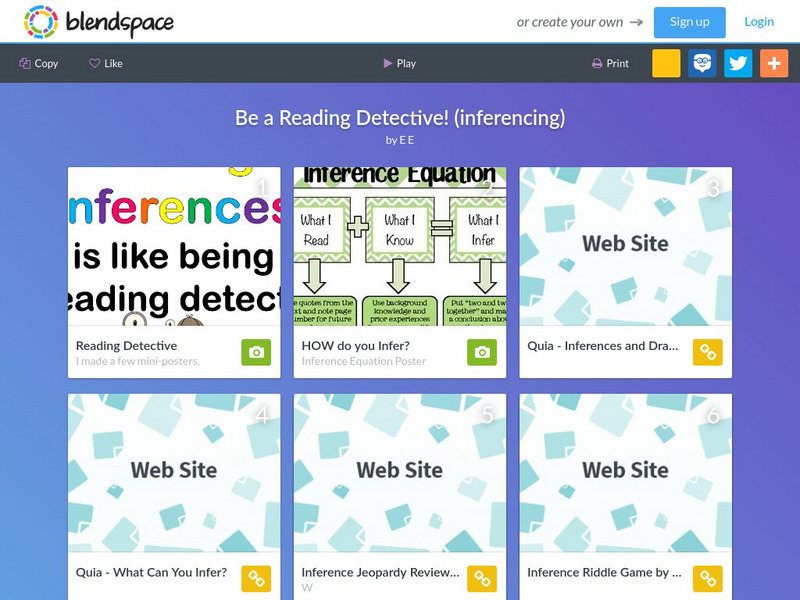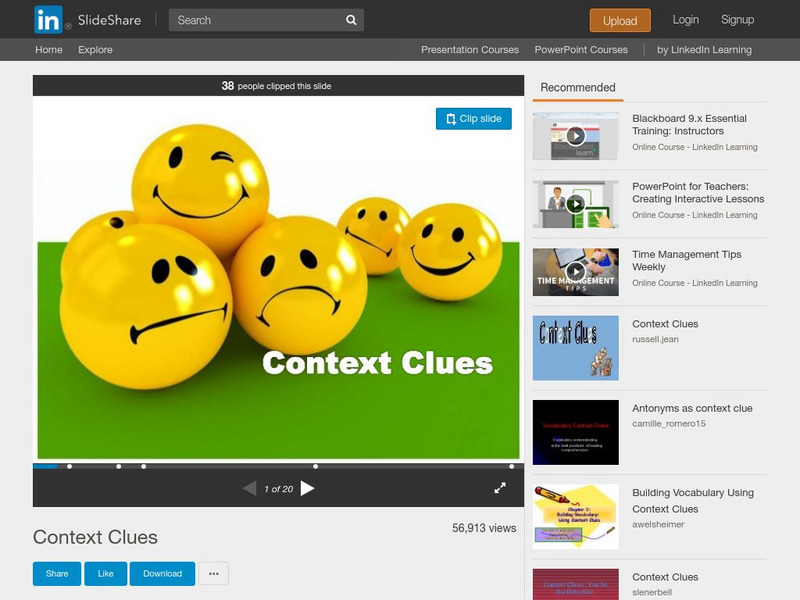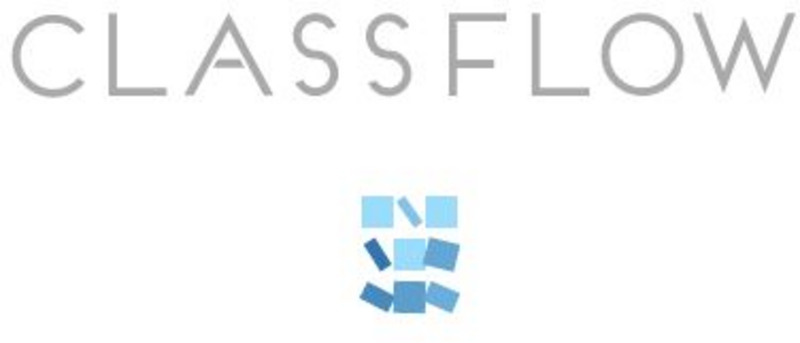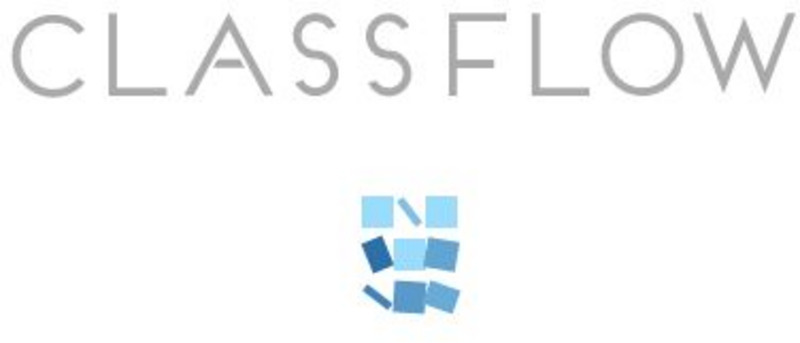Sophia Learning
Sophia: Choosing a Past Tense: Lesson 3
This lesson discusses how to determine which past tense verb to use in a given situation. It is 3 of 4 in the series titled "Choosing a Past Tense."
Sophia Learning
Sophia: Choosing a Present Tense: Lesson 3
This lesson discusses how to determine which present tense verb to use in a given situation. It is 3 of 4 in the series titled "Choosing a Present Tense."
Sophia Learning
Sophia: Affixes: Lesson 1
This lesson introduces affixes, including suffixes and prefixes and lesser-known affixes. It is 1 of 5 in the series titled "Affixes."
Sophia Learning
Sophia: Compare and Contrast Papers
This lesson introduces comparison/contrast papers.
Sophia Learning
Sophia: Word Choice: Lesson 2
A slideshow introducing the topic of word choice and discussing its importance.
Sophia Learning
Sophia: Prepositions: Lesson 2
This lesson introduces prepositions and their role. It is 2 of 2 in the series titled "Prepositions."
Soft Schools
Soft Schools: Correlative Conjunctions Quiz
Choose the correct correlative conjunctions to complete fifteen sentences in this online quiz. Submit your answers to see how you did.
Vocabulary Spelling City
Vocabulary Spelling City: Play Match It Sentences Games
Complete ten analogy sentences by choosing the word that matches the relationship in each sentence.
Sophia Learning
Sophia: Informal Language
This lesson discusses informal language and when it should be used. SL.9-10.6 Adapt to task/formal
US Department of Education
The Partnership for Reading: Childhood: Teaching Approaches: Fluency Instruction
A short explanation of why fluency instruction is important and how fluency develops in a child.
TES Global
Blendspace: Text Structures
A thirty-part learning module on text structures including description, sequence, problem and solution, compare and contrast, and cause and effect. Lessons include links to pictures, story text, informational text, videos, charts,...
TES Global
Blendspace: Ri/rl 5.6 Point of View
Work through twenty-two links to pictures, charts, and videos to learn more about point of view in both informational and literary texts.
TES Global
Blendspace: Informational Text
A twelve-part learning module with links to images, texts, slides, and charts that teach skills to build reading comprehension with informational texts.
TES Global
Blendspace: Be a Reading Detective! (Inferencing)
A six-part learning module with images and websites that students can use to build inferencing skills.
TES Global
Blendspace: Inference Lessons
An eleven-part learning module with links to images, videos, and websites designed to build inferencing skills.
Other
Prezi: Author's Purpose
Slideshow provides an explanation of the author's purpose which is to reflect, inform, persuade, or entertain (RIPE).
Tom Richey
Slide Share: Context Clues
This downloadable slideshow focuses on context clues including definitions, the four types, and examples.
ClassFlow
Class Flow: Transitional Words
[Free Registration/Login Required] This flipchart helps students to understand commonly used transition words and phrases.
ClassFlow
Class Flow: Character Analysis
[Free Registration/Login Required] This elementary flipchart uses examples from children's literature to explore character. It includes writing activities and challenges children to think from the character's point of view.
ClassFlow
Class Flow: Compare & Contrast Little Red Riding Hood and Lon Po Po
[Free Registration/Login Required] Students will hear a retelling of Little Red Riding Hood. Students can record their retelling of Lon PoPo. There are two sites to learn more about the author of Lon PoPo, Ed Young. Students will then...
ClassFlow
Class Flow: Connectives
[Free Registration/Login Required] This flipchart investigates connecting words and phrases, providing examples with different kinds of text. It helps students to identify the connecting words by helping them classify the various examples.
ClassFlow
Class Flow: Dictionary
[Free Registration/Login Required] Students will recognize the functions of dictionaries and the types of information available in dictionaries used in schools. They will learn the differences between dictionaries and thesauruses....


